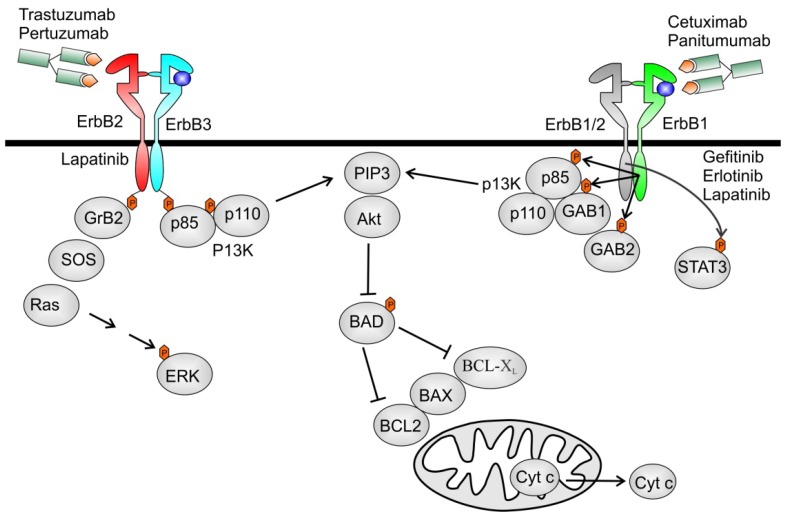Figure 2.
Mechanisms of ErbB signaling and inhibition in tumour cell. Oncogenic signaling incancer cells can be mediated by overexpressed ErbB2, ErbB2 homodimers or ErbB2/ErbB3 heterodimers, and also by ErbB1 homodimers or ErbB1/ErbB2 heterodimers. These events trigger signaling through a complex array of intracellular pathways that initiate and control a range of cellular processes. Out of many signaling event in a network, three key signaling pathways are the Ras-Erk (mitogen-activated protein kinase (MAPK)), the phosphatidylinositol 3-kinase (PI3K)–AKT and the Janus Kinase (JAK-STAT) pathway. The monoclonal antibodies (mAbs) cetuximab, panitumumab, trastuzumab and pertuzumab act extracellulary by blocking ligand binding and/or receptor dimerization. The small molecule tyrosine kinase inhibitors (TKI) gefitinib, erlotinib and lapatinib compete with ATP in the tyrosine-kinase domain of the receptor and block tyrosine kinase activity. Both interrupt downstream signaling. In addition to inhibiting ErbB signaling, mAbs might also mediate anti-tumour effects through antibody-dependent cell-mediated cytotoxicity (ADCC). Inhibition of ErbB2 by trastuzumab impairs all downstream events, in particular reversing BCL2-antagonist of cell death (BAD) inhibition, leading to a decrease in anti-apoptotic Bcl-xL expression. This leads to a destabilization of the mitochrondrial membrane and ATP depletion, cytochroom c release and caspase activation. Only signaling through these three pathways and known subcellular processes are shown here for simplicity.

